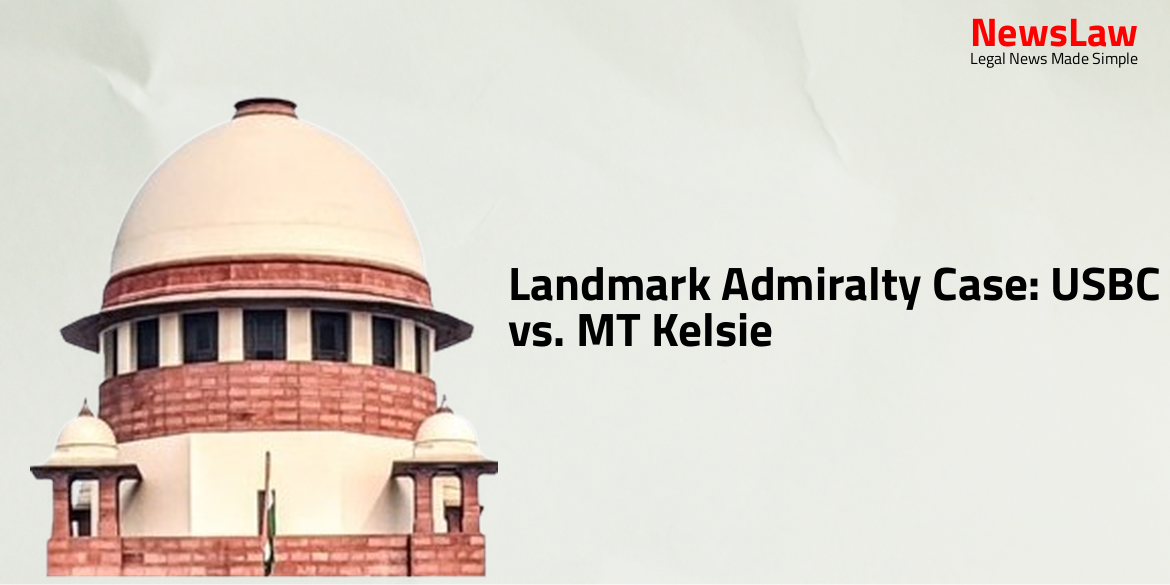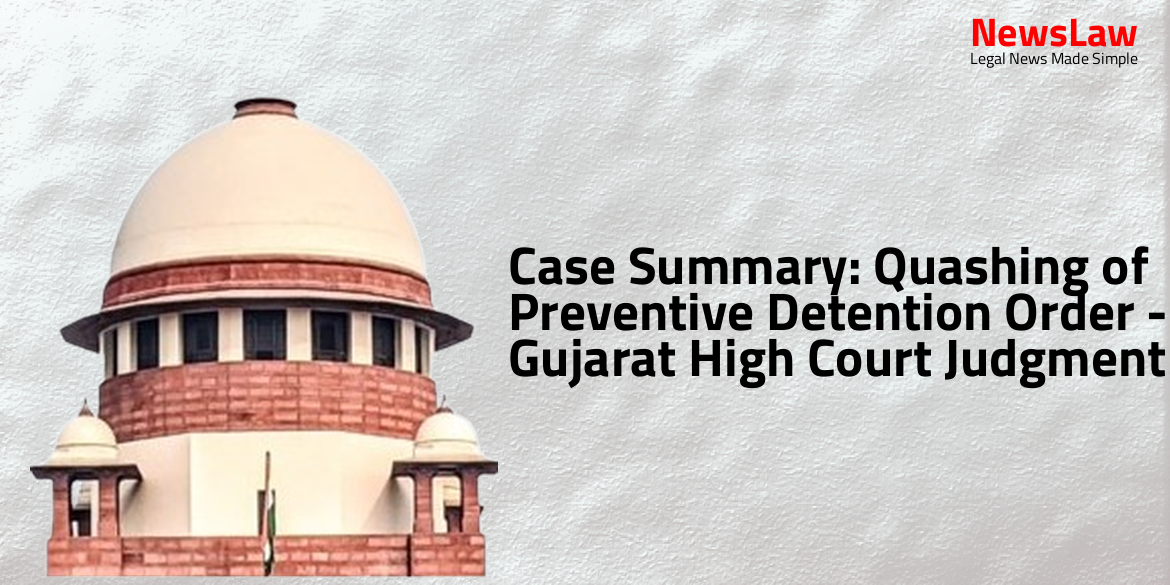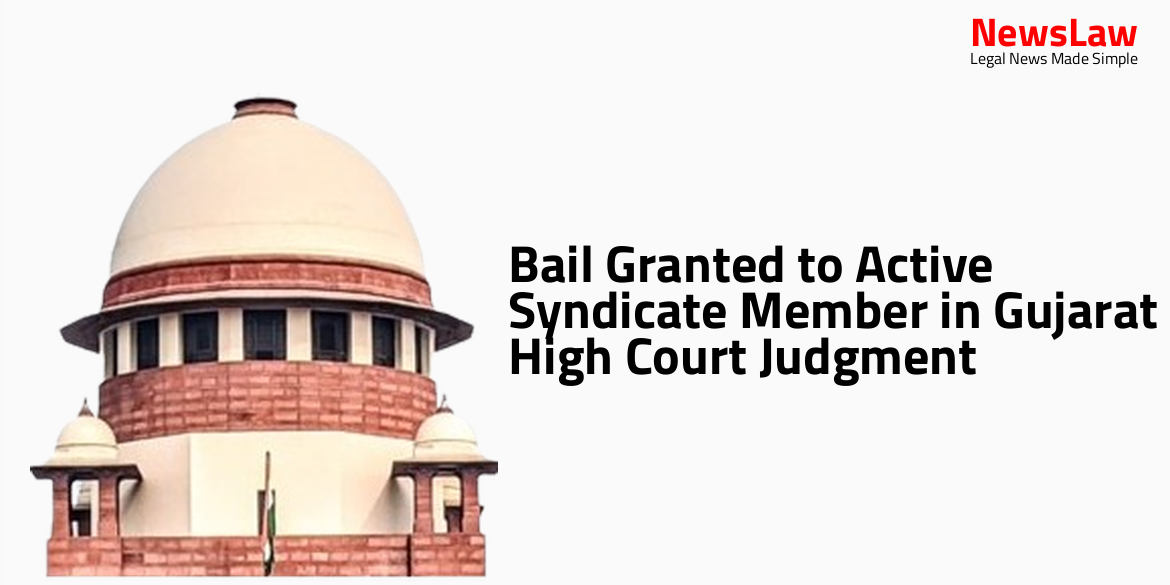In a groundbreaking ruling by the Gujarat High Court, the case of USBC vs. MT Kelsie has set new precedents in admiralty law. This case delves into the complex legal intricacies surrounding the conversion of a vessel into scrap and its impact on admiralty jurisdiction. Let’s dive into the details of this landmark judgement that has implications for maritime law. #AdmiraltyLaw #LegalCase #GujaratHighCourt
Facts
- Plaintiff has brought an Admiralty Suit against the defendant-vessel MT Kelsie.
- Plaintiff seeks payment of USD 780,386.96 for maintenance, repair, crew wages, along with interest.
- Plaintiff also seeks payment of USD 87,074.57 for costs and expenses incurred.
- Defendant-vessel is heading to Bhavnagar to be scrapped to avoid payment.
- USBC claims to be the owner of the defendant-vessel after purchasing it with a Bill of Sale.
- Defendant-vessel ownership changed hands multiple times before USBC acquired it.
- USBC opened a Letter of Credit in favor of Care Cabotage as per an agreement.
- Defendant-vessel breached arrest warrant on 07.11.2023 and sailed out of Malaysian waters.
- Plaintiff seeks to arrest MT Kelsie and its components for security of claim and sale proceeds utilization.
Arguments
- Learned Sr. Advocate, Mr. Soparkar, argued that once beaching of the vessel had taken place and all procedural formalities were completed, the vessel ceased to be a ship according to Section 3 of the Admiralty Act.
- He further argued that since the navigation system of the vessel had been destroyed, it was converted into goods and the original character as a vessel was lost, hence Admiralty jurisdiction couldn’t be invoked.
- Referring to Ship Breaking Code, it was mentioned that destroying the navigation system is a requirement once a ship is beached, and USBC had followed the code by destroying it.
- Mr. Soparkar argued that the decree held by the petitioner was not in rem but in personam, and therefore cannot be claimed with the change of ship owners as per Section 5 of the Admiralty Act.
- Citing the ‘Chrisomar Corporation Vs. MJR Steels Pvt. Ltd.’ case, it was highlighted that ownership of the vessel is determined at the time of arrest, not at the institution of the suit.
- In response, Sr. Advocate, Mr. Desai, contended that at the time of suit filing, the vessel was within the territorial waters, satisfying Admiralty Act definitions.
- Desai also relied on ‘Rajender Bansal Vs. Bhuru’ case, stating that the prevailing situation during suit institution determines the court’s jurisdiction.
- Lastly, Sr. Advocate, Mr. Soparkar argued that the present owner of the vessel, USBC, had legitimately purchased it for scrapping purposes with all permissions obtained, bills paid, and ownership transferred before suit filing.
- Arguments were made that the situation regarding jurisdiction under the Admiralty Act has not changed since its codification and enforcement.
- The Act of 2017 specifies that jurisdiction can only be exercised in waters up to and including territorial waters of the respective jurisdiction of the High Court.
- The defendant’s alleged attempt to circumvent the legal process was refuted based on the factual scenario and the provisions of the Act.
- The court’s jurisdiction under the Admiralty Act was discussed in the case of ‘Destel Marine Limited’, emphasizing the ability to entertain actions in rem against a ship.
- The definition of ‘ship’ under the General Clauses Act includes an inclusive definition.
- The court may exercise jurisdiction over a vessel only while it is within the waters, not when it is beached or on land based on the emphasis on ‘water’ in Section 3 of the Act.
- Factors like beaching, bill of entry, or intention are not part of the statute and are not relevant considerations when exercising admiralty jurisdiction under the Admiralty Act of 2017.
Analysis
- The defendant-vessel has already been beached, making it no longer within the territorial waters, hence, the admiralty jurisdiction cannot be exercised.
- The Intervener declared their intention to discontinue the use of the vessel as a ship, paid customs duty as goods, making it disentitled to navigate the vessel.
- The vessel was deemed non-operational before the court order notice could be served, as all necessary formalities for beaching had been completed prior.
- The vessel’s status changed from a ship to scrap once it was beached and all procedural formalities were completed legally.
- The court cannot exercise admiralty jurisdiction over a vessel that is beached and on land, as per local laws.
- The meaning of ‘ship’ refers to a vessel employed in navigation, which is crucial for invoking admiralty jurisdiction.
- Navigability is a dominant factor in determining if a vessel is considered a ship.
- The views of the Single Judge in the judgement do not warrant interference.
- The navigation system of the ship was destroyed, all formalities for beaching were completed, making it lose its significance as a vessel.
- Once a ship is beached and no longer in territorial waters, admiralty jurisdiction cannot be invoked.
- The present suit should be dismissed based on the law laid down in the case of Western Ship Breaking Industry vs Laiki Bank (Helias) S.A., Manu/GJ/8251.
- According to the mentioned case, the ‘intention’ of the owner to use the ship for breaking purposes is sufficient.
- It was established that the owner’s intention alone, without any actual breaking activity, is enough to warrant dismissal of the suit.
Decision
- The defendant-vessel was purchased to be turned into scrap
- The navigation system of the defendant-vessel has been destroyed
- Due to being turned into scrap and the destruction of the navigation system, the defendant-vessel is no longer considered a vessel
- Maritime jurisdiction cannot be exercised in this case
- The present suit is dismissed on the ground of jurisdiction
- The court has not gone into the merits of the case
- Petitioner is directed to explore other remedies available under the law
Case Title: PRIVILLION MANAGEMENT LIMITED Vs. MT KELSIE (IMO NO 9016923)
Case Number: R/AS/19/2024



